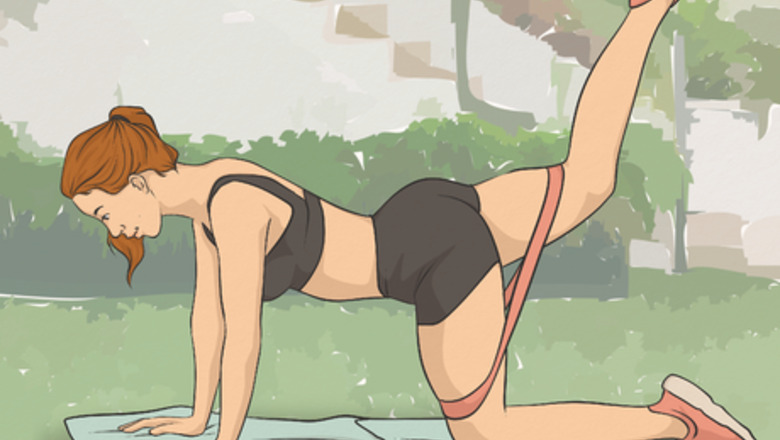
views
Exercising Your Way to a Great Badonkadonk
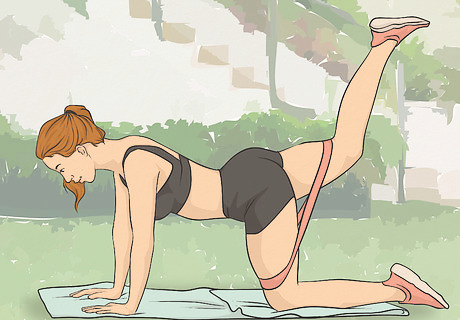
Focus on your glutes. Any good combination of cardio and weight-training will help tone and shape your body, but in order to achieve a badonkadonk, you need to focus on your gluteus maximus, the muscle that forms the underlying shape of your butt. Any motion that pushes your body up engages the glutes. It is possible to actually make your butt bigger and rounder by encouraging your glutes to grow through specific muscle-building exercises.
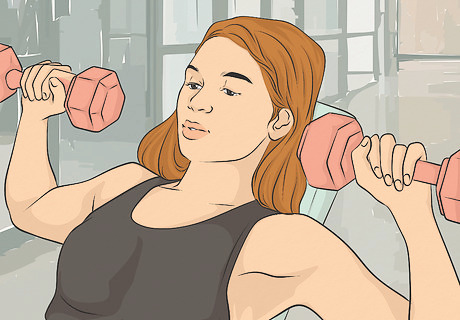
Use weights. An effective way to build your glutes (or any muscle for that matter) is to lift heavy weights 2 to 3 times each week. For weighted exercises, use as much weight as you can handle with good form for 5 sets of 5 reps each. Make sure that the weights are heavy enough that the last rep of each set is very slow and difficult to complete. Some fitness experts argue that the popular advice of doing 8 to 12 reps is outdated, and that it’s more effective to complete fewer reps (no more than 5) with heavier weights.
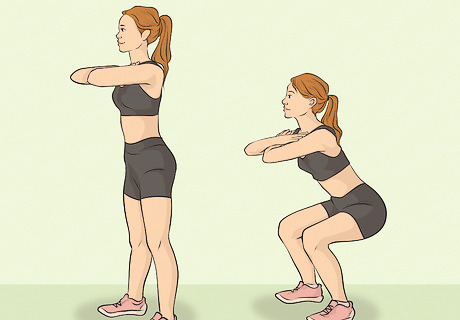
Learn how to squat. Squats — particularly barbell squats — are the most popularly cited exercise for build a large, shapely backside. Before you add weights to your routine, however, you need to perfect a basic squat: Starting position: stand with your back straight, your chest out, and your head up, with your chin parallel to the floor. Your feet should be hip-width apart, with your toes pointing slightly outward. Squatting down: ensure that you keep that posture (straight back, chest out, head up) as you bend your knees and slowly lower your butt toward the ground. It may help you avoid slouching if you push your knees outward and focus your weight into your heels. As you lower your butt toward the ground, ensure that your knees do not hang over your toes. Imagine a line running across your toes, and do not let your knees go past that. To do otherwise could cause injury. People generally stop when their legs are bent at a 90-degree angle, with the upper legs parallel to the floor; however, you can — and if possible, should — go lower! Once you are down as far as you can go, return to your starting position: exhale as you push yourself back up from the floor with the heels of your feet.
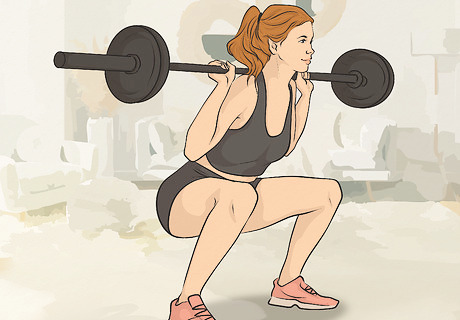
Do barbell squats. With both arms, balance a barbell on the back of your shoulders, just slightly below your neck. Still holding the barbell, squat down as low as you can without letting your knees extend past your toes. As you drive up, clench your butt cheeks together to target those glutes. You may find it helpful to use a squat rack for this exercise for safety purposes. If you are unsure of whether your gym has a squat rack, as an attendant. Most gym attendants are more than happy to show you how to use the equipment, too, so don’t be shy!
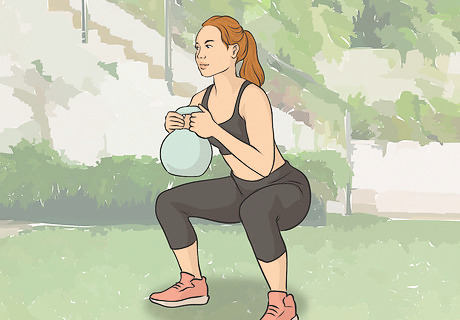
Consider back-friendly squat alternatives. If you have any back or shoulder problems, you can substitute the barbell squat with a dumbbell variation or wide-stance leg press. The dumbbell variation: squat while holding a heavy dumbbell in each hand. You’ll just hold the dumbbells in your hands along the sides of your legs — you needn’t do anything special with them. Be sure to keep a strong core and back here, as with any squat! Leg presses: lie back in a 45-degree leg press machine and with just your heels resting on the top outside corners of the platform, and your toes pointed out at 45-degree angles. Doing a wide-stance leg press will help focus the work on your glutes as opposed to your quads (upper thighs).
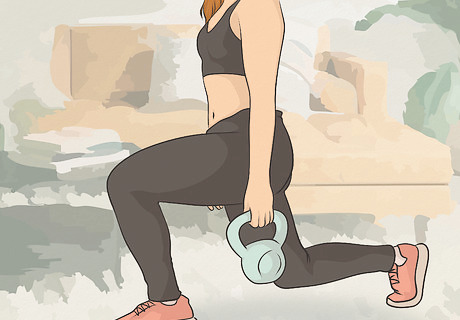
Do weighted lunges. Experts claim that squats and lunges are the 2 fundamental exercises required for building a great butt. You can do lunges without weights, but adding weights will definitely rev up your results. To do a perfect lunge: Stand with your back straight, chest forward and chin parallel to the floor. Your feet should be hip distance apart, with your toes pointing forward. Step your right foot forward roughly 2 feet (0.6 m) and lower your body until both legs bend at 90-degree angles. Your front shin should be straight and your back knee should hover just a few inches above the ground. Use your left leg to push back upward and pull your right leg back to return to your starting position. As with squats, be careful that your front knee does not extend past your toes as you bend your leg, as this could cause an injury. To add weight to a lunge, as with dumbbell squats, hold the heaviest dumbbells you can in each hand, and keep your arms straight down at your sides as you go through your lunge. You should feel tired after 5 reps.
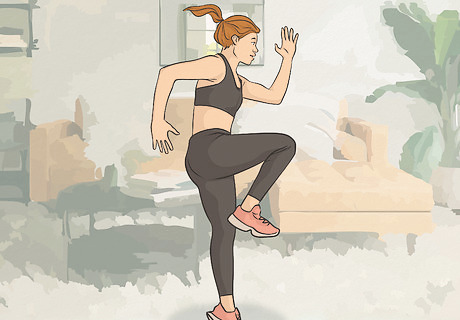
Do plyometric exercises. Plyometric exercises such as jump squats, jump lunges, and box jumps will not only help you build muscle; they’ll also boost your metabolism and help you burn calories. The key is to make your movements explosive. As an example, here’s how to do a jump squat: Get into the starting position of a regular squat (feet hip-with apart, back straight, head and chest up) and cross your arms over your chest. As you inhale, squat down as you would normally squat, until your thighs are parallel to the floor, or lower. Pressing mainly into the balls of your feet to push off, jump straight up into the air as high as you can. Exhale as you do this. As soon as your feet touch the floor, squat down and jump again. Reps will vary depending on your fitness. A good gauge is to do it until your final rep feels almost impossible.
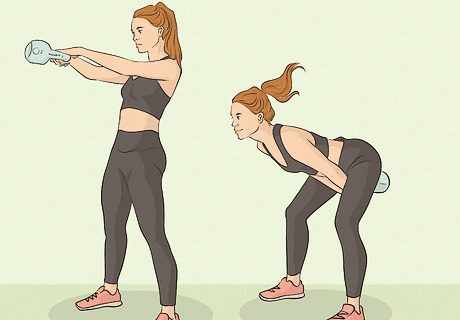
Engage your glutes whenever you can. Think about how you can engage your glutes in any activity you’re doing — for example, if you’re running on a treadmill, do it at an incline to better engage your ankles, legs and — most importantly — your glutes. You can even build your glutes while sitting at a desk or standing in a lineup, although you might get some funny looks if anyone notices you. Wherever you are, alternate between your right and left butt cheeks -- flex, relax, flex, relax.
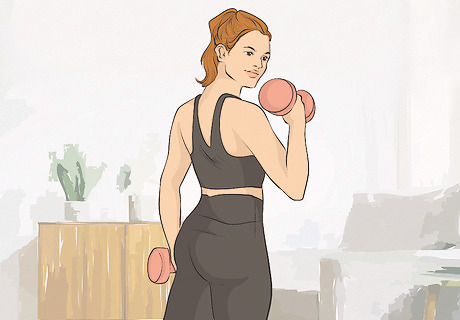
Switch things up regularly. By alternating what you do each day, you can continue to exercise without exhausting your muscles — for example, you might work your arms every 2 or 3 days, and alternate those days with your legs and core. You might also consider doing low-impact exercises such as yoga, pilates, or swimming on rest days.
Taking Care of Yourself
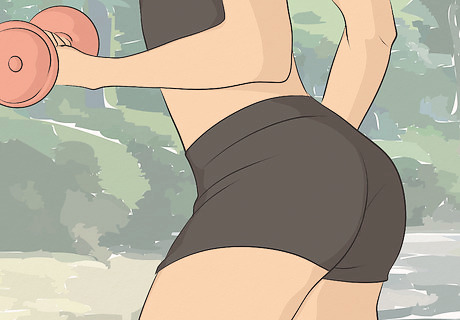
Be prepared to put in the time. Getting the popular “badonkadonk” look of a large, shapely backside and a small waist takes dedication. Be prepared to eat healthy and work out at least a little bit every day. Celebrity badonkadonk gurus Kim Kardashian, J Lo and Beyoncé all claim to work out for at least 1 hour each day. All of their workouts are roughly half cardio and half weight-training.
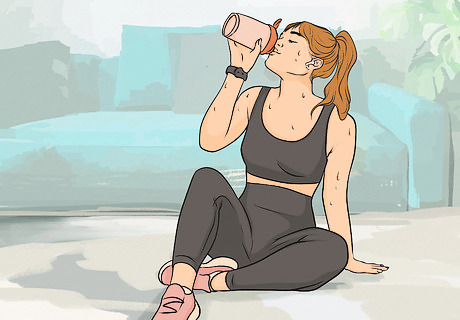
Always warm up and cool down. Whenever you’re exercising, it’s imperative to warm up beforehand and cool down afterward. Exactly what you do to warm up and cool down will depend on the exercise you’re doing: Before cardio, you should do some slow, gentle aerobic activity — for example, walking or lightly jogging. Cooling down would include some slower jogging or walking, and then some stretching. Before strength-training, do a cardio activity that works out all of your muscles — particularly the ones that you’ll be focusing on that day. Cooling down would include some slower jogging or walking, and then some stretching.
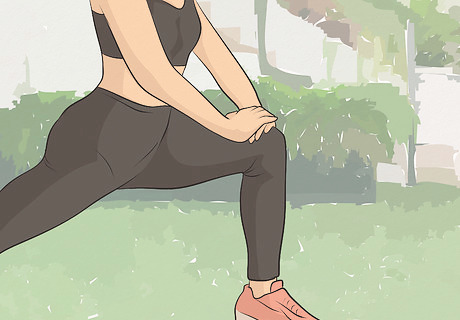
Give your muscles time to recover between workouts. Your muscles need rest in order to repair themselves and grow. A rest day doesn’t mean skipping exercise: it means switching things up so that you’re not working the same muscles every day, which can lead to stress and injury. It’s important to listen to your body. If you’re sore, exhausted, or feel bored with your workout, your body might be telling you that it needs a break. How often you rest your muscles will depend on how fit you are. If you’re new to exercise, you may find that you need to rest your muscles quite often at first; as you grow stronger, you’ll require less rest.
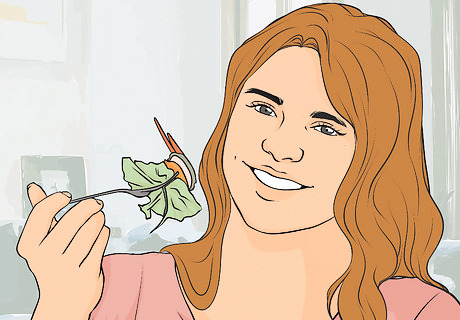
Eat healthy. Studies have shown that exercise alone is not enough to lose weight. If you want a flat stomach to go along with your large, shapely butt, you need to eat healthy and drink lots of water. Stick to lean proteins (chicken, fish, legumes), healthy fats (almonds, chia seeds, avocados), fresh vegetables and fruits, and whole, unprocessed foods in general.
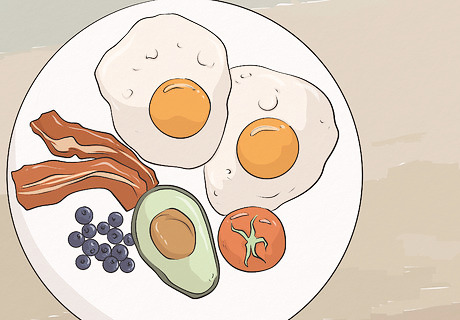
Ensure that you get enough protein. Protein forms the building blocks of muscle — in order to build muscle, you must consume enough protein. Research has found that 1.6 grams of protein per kg (0.73 grams per lb) of bodyweight each day is the optimal amount of protein to gain muscle. Some good sources of protein include legumes (chickpeas, soy), lean meats (chicken, fish), nuts (almonds, walnuts), and protein shakes (hemp and rice protein powders can boost your protein intake without the bloat that can come from consuming dairy products).
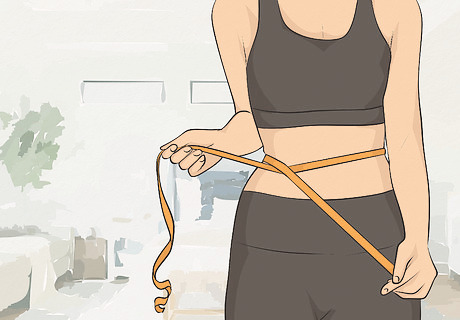
Don't lose too much weight. As you exercise and eat right you may find that you lose weight. This is great as long as you don’t get too skinny! A badonkadonk is the opposite of a skinny supermodel butt. Leave your hangups about flab and cellulite behind; badonkadonk fans care more about size and shape, and how you carry yourself, than about how tight your butt is. Kim Kardashian, for example, is open about loving her “bumpy bits” (cellulite).
Knowing How to Work It
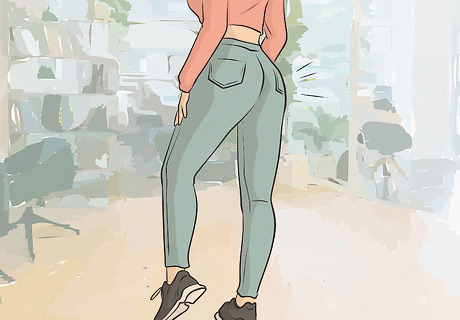
Wear jeans that make your butt pop. Part of the allure of a large, shapely butt is in its presentation. Investing in a pair of perfect-fitting jeans is essential to accentuating your badonkadonk. Look for jeans with the Brazilian waistband: a very low-rise jean with a short zipper (no more than a few inches long). If you have a small waist, very high-waisted jeans will highlight your waist-to-hip ratio and help accentuate your badonkadonk. Jeans with smaller back pockets and/or detailing on or around the butt will help your butt look bigger.
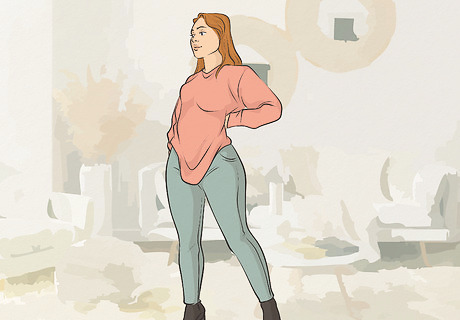
Wear tight-fitting but stretchy pants. Whatever pants you wear, get ones that are made with spandex. The more stretch, the better. This is particularly important when choosing a pair of jeans, as you want them to hug your curvy butt without squeezing it too tightly or making it look smaller.
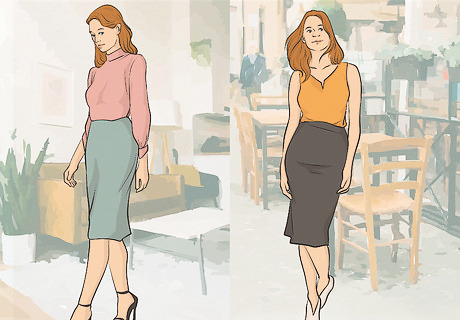
Consider having dresses and skirts tailored. It can be difficult to find great-fitting clothes if you’ve got a badonkadonk — particularly if you have a small waist, too. Getting your clothes tailored will ensure a perfect fit. Kim Kardashian has all of her dresses tailored so that they "cup" her butt.
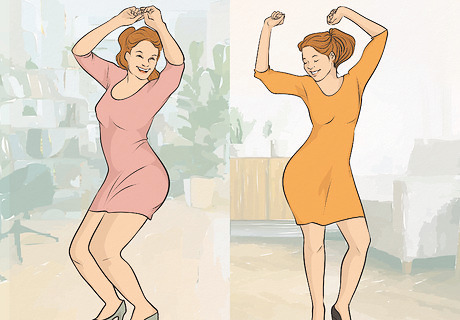
Shake it! The appeal of a badonkadonk is not just how it looks, but also how it moves. You may already notice a bit more pep in your step just from all the exercise you’ve been doing! Learn how to walk like a diva. Take a dance class in hip hop or belly dance; both will teach you how to shake your booty with pride, and will help you get fit, too.


















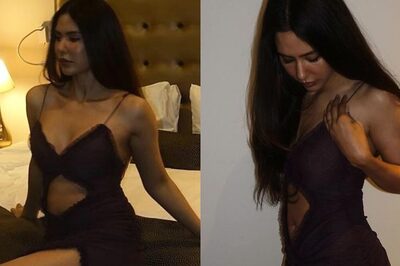

Comments
0 comment